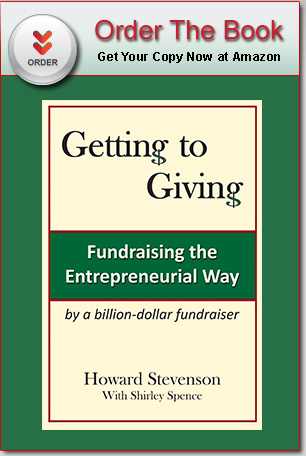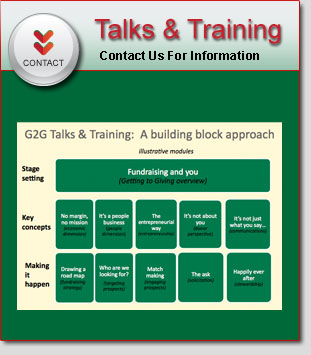I have a few of those! As I was wincingly recalling them, I realized what they had in common – jerks. Most of the people I have encountered were quite wonderful, but running into a jerk or two is inevitable. What to do?
Jerks come in a variety of flavors. Sometimes you can turn them around, but more often, not. Here are a few examples.
On a fundraising trip to a Harvard Business School alum’s Florida home, I found him determined to talk about one thing, and one thing only: the parking ticket he had received in the HBS parking lot back in his student days, some 30 years earlier. He hadn’t, and wouldn’t, let go of that.
Finally—figuring this was a lost cause—I pointed out that Harvard University, not HBS, controls Harvard’s parking lots and issues tickets; offered to write him a check for the cost of the ticket, if that would make him feel better; and suggested that if this one memory was all he had taken away from HBS, then we probably shouldn’t be having this discussion.
That jolted him into a more positive conversation. And yes, he did eventually make a nice gift.
One of my friends, a very successful volunteer fundraiser, likes to tell what he calls the Peanut Butter Story. It begins with a call on a donor. After some discussion, the donor asked if my friend liked peanut butter.
“Yes,” my friend replied. “Well, then, no money from me,” the donor shot back. “Why not?” asked the puzzled fundraiser. “Well, I wasn’t going to give you any anyway, but now I have a reason.”
Really? Seems an extreme example of looking for an excuse, to me.
Another – equally unsuccessful – story, from my fundraising travels. I once was approached by someone interested in making a $5 million donation to HBS. The quid pro quo? He wanted his son guaranteed admission.
I couldn’t help myself. I paused, and asked him how old his son was. He replied “Nine years old.” “Sure,” I said “but I won’t be around, and there will be no record of this conversation.” His stunned look was my reward, and I quickly added that HBS doesn’t sell admissions.
We didn’t get the money.
It is true that, as a fundraiser, you have to be able to leave your ego aside. At the same time, you have to be wary of donors in it for the power or prestige. You have to preserve the integrity of the institution. Not every donor wish can or should be fulfilled.
Once you determine that someone is a jerk, you’re probably better off walking away. The nicest person in town may be a far better prospect than the richest person in town. You’re not just looking for money; commitment to your cause, energy, talent and connections are powerful donor assets.
By the way, hearing “no” from a prospect doesn’t automatically qualify the experience as a disaster, in my book. “No” can mean a number of different things.
It may really be a “Not now”; the donor has other commitments on his plate. Or, it may mean “Yes, but…”; he wants more information or has to figure out how to get his spouse on board. Even a “Hell, no!” may mellow over time. Be gracious . . . and smart; don’t slam any doors.



